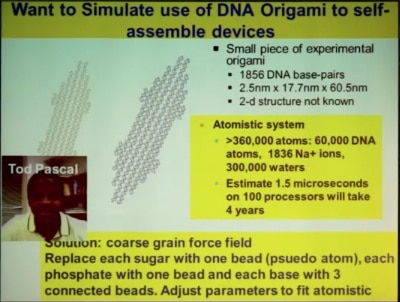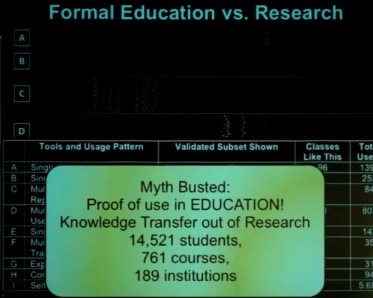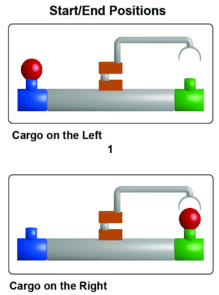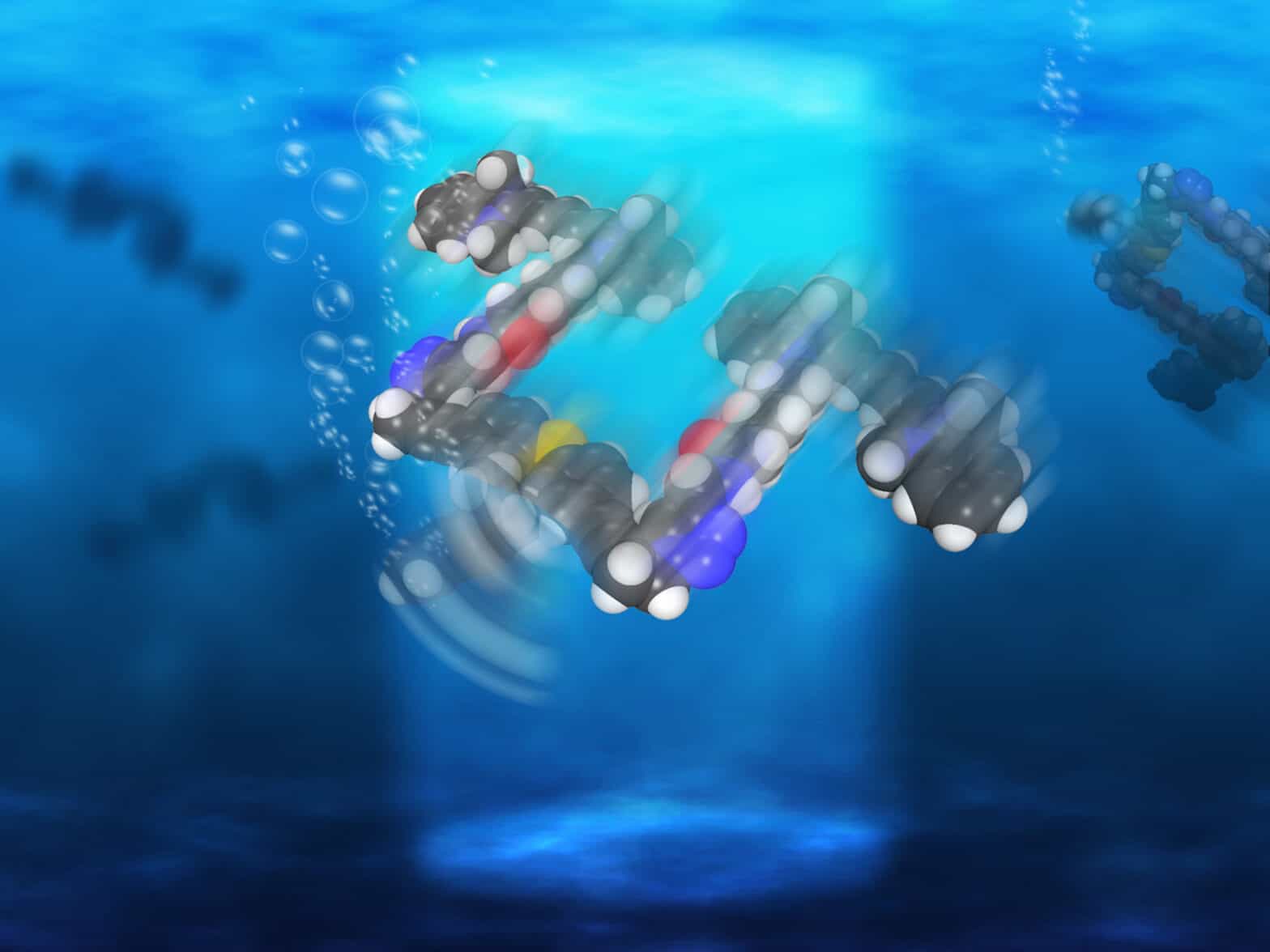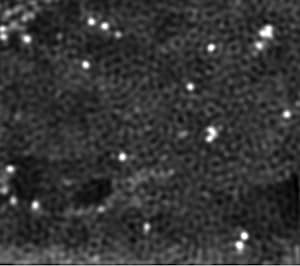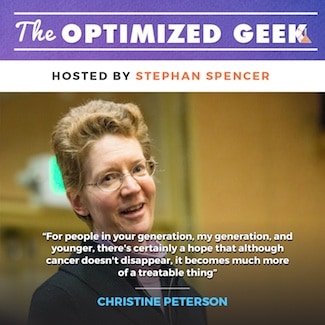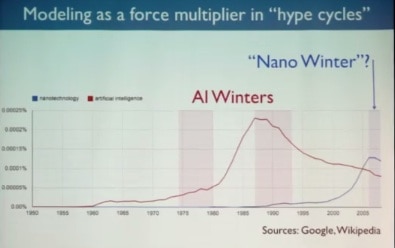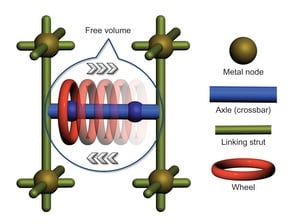Prof. William Goddard presented four advances from his research group that enable going from first principles quantum mechanics calculations to realistic nanosystems of interest with millions or billions of atoms.
Conference video: Nanoscale Materials, Devices, and Processing Predicted from First Principles
